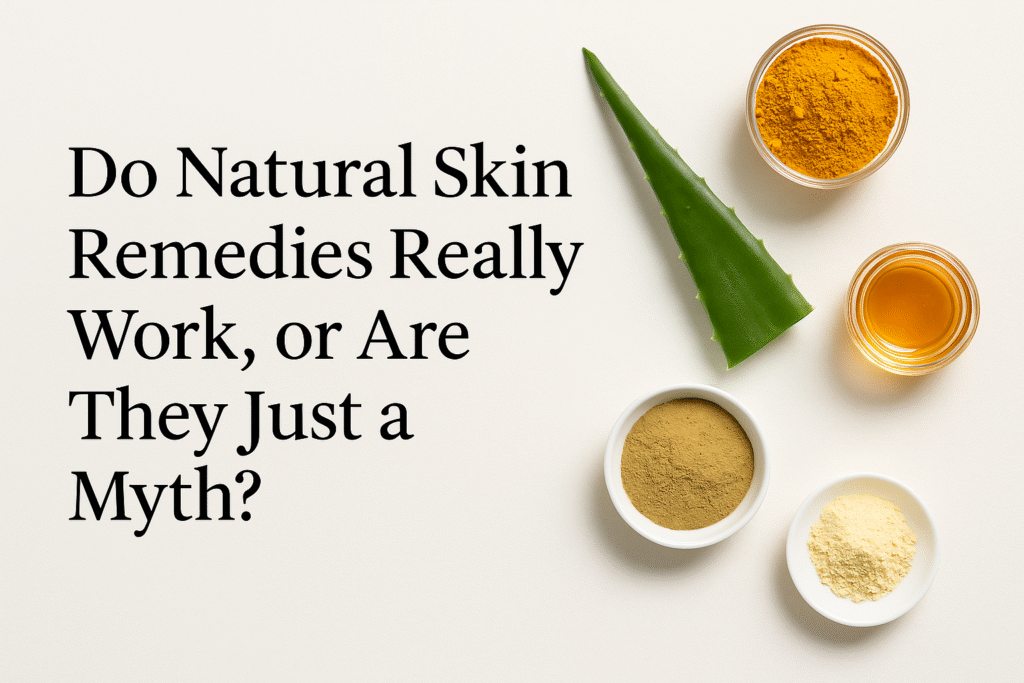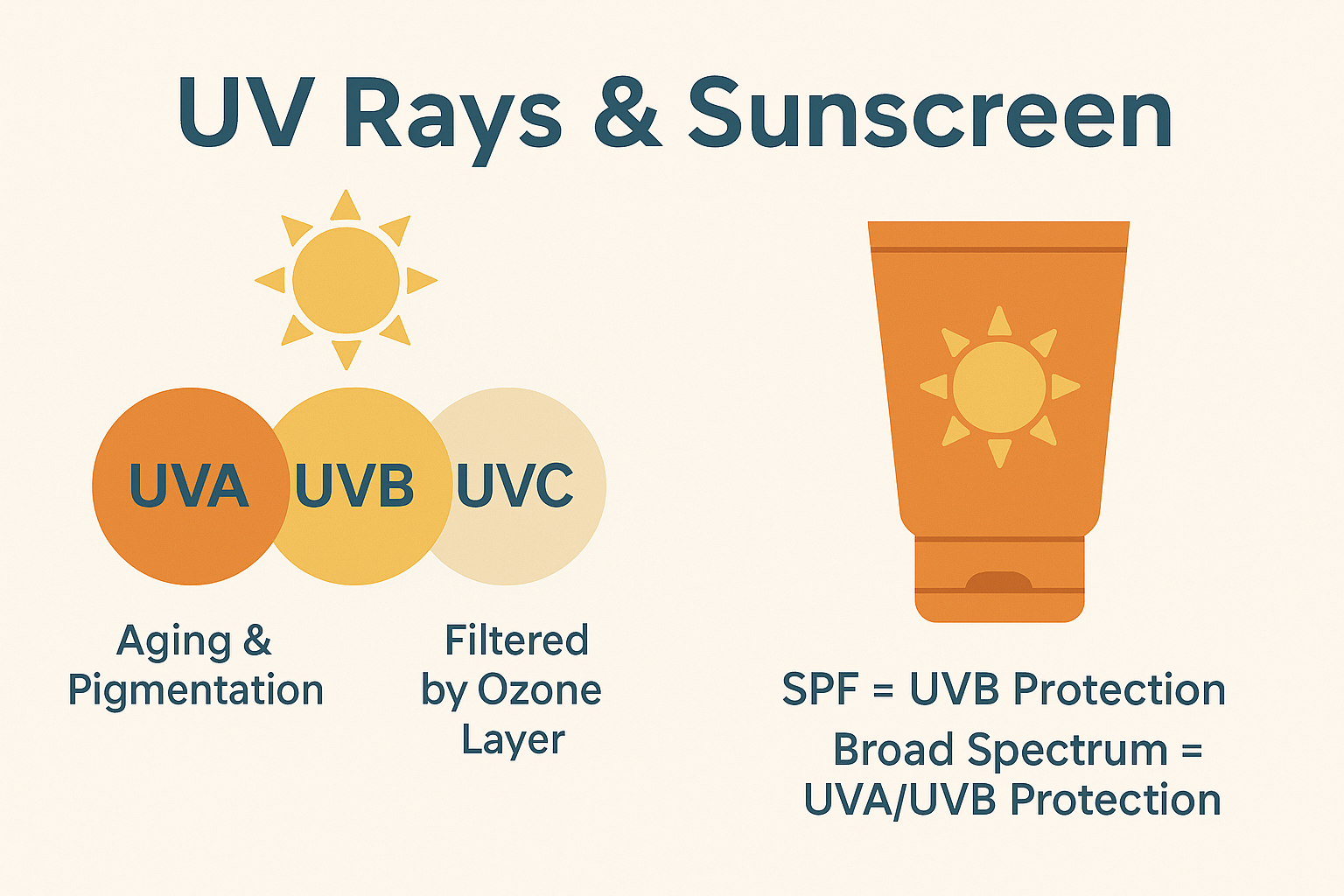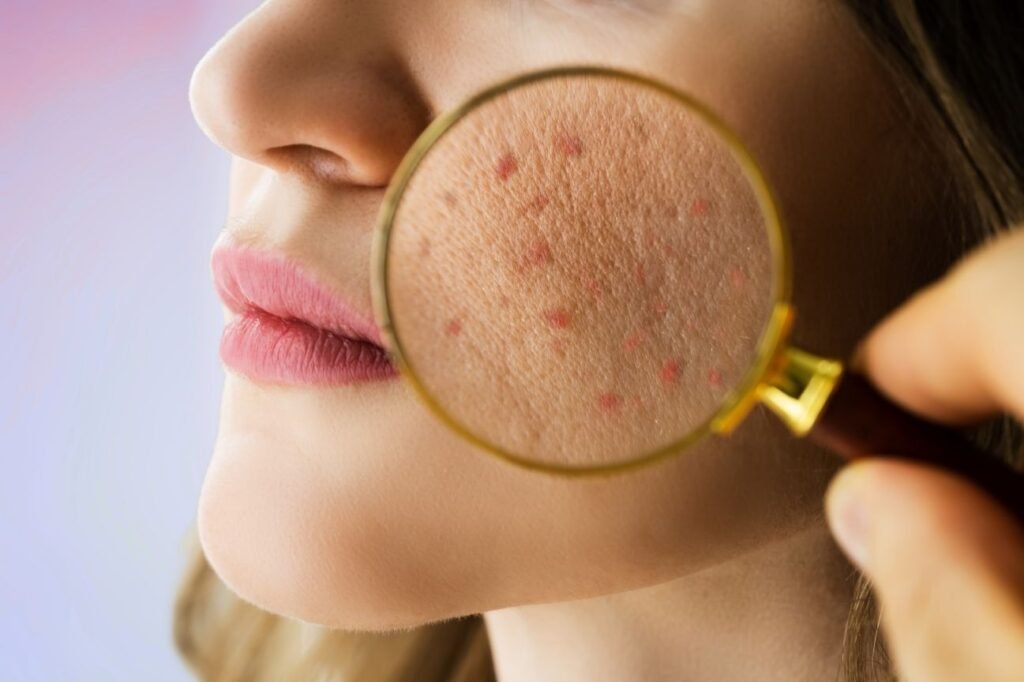Introduction
From our grandmothers’ kitchens to viral Instagram reels — natural skin remedies have long promised glowing skin without chemicals or clinics. But as dermatology advances, a crucial question remains:
Do natural skin remedies really work — or are they simply myths passed down without scientific proof?
Let’s break it down, remedy by remedy, and uncover what’s real and what’s not.
🌿 1. Turmeric for Glowing Skin and Acne
The Belief: Turmeric has anti-inflammatory, antibacterial, and brightening properties.
What Science Says:
- Contains curcumin, a proven anti-inflammatory.
- Can reduce mild acne and redness.
- But raw turmeric may stain the skin and irritate sensitive types.
Derm Verdict: Works in controlled, formulated products. Avoid raw use on active acne.
🍃 2. Aloe Vera for Burns, Pimples, and Hydration
The Belief: Cools the skin, heals acne and sunburns.
What Science Says:
- Backed by multiple studies for burns, minor wounds, and hydration.
- Natural antibacterial properties.
- But raw gel can be contaminated or oxidized.
Derm Verdict: Yes, aloe works — when pure and fresh or in clinically tested forms.
🧱 3. Multani Mitti (Fuller’s Earth) for Oily Skin
The Belief: Absorbs oil, tightens pores, clears acne.
What Science Says:
- Absorbs excess oil effectively.
- But overuse can cause dryness, irritation, and worsen acne.
Derm Verdict: Good for occasional use in oily skin. Never daily or on dry/sensitive skin.
🍯 4. Honey for Acne and Glow
The Belief: Antibacterial and moisturizing.
What Science Says:
- Raw honey (especially Manuka) has proven antimicrobial properties.
- Helps in wound healing and hydration.
- But regular table honey has no effect.
Derm Verdict: Medical-grade honey is beneficial. Supermarket honey? Not so much.
🌾 5. Besan (Gram Flour) for Fairness and Exfoliation
The Belief: Evens skin tone, exfoliates dead cells.
What Science Says:
- Mild exfoliant.
- No scientific proof of skin “lightening” or pigmentation removal.
Derm Verdict: Safe, but ineffective against deep pigmentation or melasma.
When Natural Remedies Can Be Risky
- No Standard Dosage → Overuse = irritation or burns
- No Patch Test → Risk of allergy or dermatitis
- No Preservation → Bacterial growth in DIY mixes
- Medical Delays → May worsen underlying skin disease
What Really Works: Evidence-Based Dermatology
Natural ingredients can be effective — when extracted, purified, and scientifically dosed in professional skincare products. For example:
- Curcumin in lab-processed serums
- Aloe in gel-based formulations
- Niacinamide (vitamin B3) for brightening
Final Verdict
Natural skin remedies are not myths — but their effectiveness depends on purity, usage, and skin type. For best results, consult a dermatologist and avoid unverified DIY trends.
📌 FAQs
Q1. Can turmeric remove acne scars?
Turmeric has anti-inflammatory properties but minimal effect on deep scars. Use with caution.
Q2. Is it safe to apply raw aloe vera daily?
Pure aloe is safe for most people but may cause sensitivity. Always patch-test.
Q3. Does multani mitti lighten skin?
No. It absorbs oil but doesn’t change melanin or pigmentation.
Q4. Why do dermatologists warn against home remedies?
Due to risks of irritation, allergic reactions, and lack of control over active ingredients.
Q5. Which is better: Natural or medical skincare?
Medical skincare with natural extracts = best of both worlds. DIY should never replace clinical treatment.



